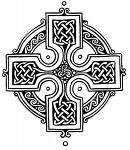Friday, February 26, 2010
Forgotten Ways II
In the first part of Alan Hirsch's book Forgotten Ways he tries to set the context for the missional church in today's culture. He notes that the Christendom model of cultural engagement (what he calls "evangelistic-attractional") is simply not up to the challenge of cross cultural evangelistic and missional engagement. With good intent many churches spend their time trying to reach the same narrow demographic slice of people. "What is becoming increasingly clear is that if we are going to meaninglfully reach this majority of people," writes Hirsch, "we are not going to be able to do it by simply doing more of the same."
Attractional evangelism has limited appeal in a culture that increasingly rejects the current mode of being church. A host of different writers have addressed this issue. (One of the best in my opinion is Reggie McNeal's Six Tough Questions.) We are now in a new missionary age which demands not only cross cultural evangelism but a mode of being (& doing) church which reaches across the cultural divide. Our consumer model of doing church, however successful it may look today, will not finally carry the day. The attractional consumer driven church is not the future. As Hirsch puts it, "We plainly cannot consume our way into discipleship."
The answer is not to become less open or more indifferent to the culture around us (as many mainline churches have done). Hirsch's insights are not cause for stubborn celebration of organ music as somehow more holy or cllinging to an out of touch building driven understanding of church. It is a challenge to rediscover what it really means to be missional.
For his part Hisch suggests what he calls the TEMPT model. It looks somethign like this:
Core Practice Spiritual Discipline
(T)together we follow Community Togetherness
(E)engagement with Scripture Integrating Scripture into our lives
(M)mission Missiion (the central discipline)
(P)passion for Jesus Worhsip and Prayer
(T)transformation Character development & accountability
He is challenging us to radically rethink what we are about in doing and being church. I'll continue the reporting in my next blog.
Subscribe to:
Post Comments (Atom)

I think we complicate things too much. David Kinnaman said it best on page 206 of his book "UNCHRISTIAN". "Christ followers must learn to respond to people in the way that Jesus did."
ReplyDeleteI haven't read Hirsch; thanks for bringing this to my attention.
ReplyDeleteI am interested in being part of the UMC breaking down the cultural barriers within which our denomination was built. At least I say I am. On the other hand, I have these nagging habits of spending time mostly with other people who are very much like me.
I am still working my way through Hirsch and taking notes. I don't agree with some of his statements/conclusions (esp. some historical ones), but will not comment until I finish (that's why I am taking notes) since I have noticed that the further I read he seems to modify and mollify some of his earlier positions.
ReplyDeleteI also noticed he quotes David Bosch's book Transforming Mission. Bishop, have you read this book? I recommend it. I read it in seminary and still have it handy on my book shelf. It is a thorough treatment of the history of missiology and "current" developments (it was originally written in 1991). That should be OK, since, as you know, in theology "new" means the last 30-40 years.
Well, I lied. I said I would not comment until I finished the book. But I just read something I need to bring to this discussion.
ReplyDeleteOn page 103, Hirsch is talking about the early Methodist movement and its success as an example of his mDNA element of disciple making. But then he says that Methodists have “declined to the degree” that we have “moved away from [our] original missional ethos or evangelism and disciple making and degenerated into mere religious legalism maintained by institution, rule books, and professional clergy.”
I can agree, to some extent, with the first part of his conclusion. We have declined (I think Hirsch may mean in more ways than simply numerical) and that decline is, in some part, due to a change of focus that is inconsistent with Wesley’s early vision. But, are we not still spreading scriptural holiness (Wesley once said the only holiness is social holiness) and practicing works of mercy by, for example, the continued work of UMCOR in the areas ravaged by hurricane Katrina? This is only one example.
We have problems, major ones even, but, Bishop, do you think we are now only a bunch of religious legalists maintained by “institution, rule books (I assume he means the Book of Discipline), and professional clergy”? Does anyone think this is an accurate statement?